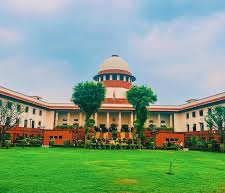
Election for J&K Assembly is scheduled to be held in three phases beginning on 18 September. Result will be declared on October 4.
Last election to the legislative assembly was held in 2014. In 2018, the government fell when BJP as coalition partner withdrew its support. In August 2019, the Parliament passed the J&K Reorganisation Act which abrogated J&K’s special status. With that the State lost its flag, criminal code, and constitutional protections. The Assembly was abrogated. The State was reorganised into two Union Territories viz. Jammu and Kashmir as one UT and Ladakh as another.
Valley-based leading political parties, as also smaller ones, vehemently resented reorganisation of the state. They formed a joint front called Gupkar Alliance and despite inherent differences resolved to struggle for the restoration of the pre-Reorganisation status of the State meaning restoration of its special status via Article 370 and 35-A. They characterised the Reorganisation Act 2019 as an attempt to eradicate the identity of the State.
The noteworthy point is that despite serious political rivalry and ideological differences, all valley-based parties as components of Gupkar Alliance unanimously opposed the doing away of J&K’s Special Status and territorial integrity.
No party has announced boycotting of elections as they used to do in earlier days. This is despite their vehement opposition to the delimitation commission which was a pre-requisite of election to the state assembly.
The BJP-led NDA government, now running the third stint in office at Centre, argued in the parliamentary debate the reasons why the special status had to be done away with and the Reorganisation Act passed. It alleged that the local regimes were misusing the special status which not only bolstered corruption but also posed a serious security threat. It said that hundreds of thousands of refugees from PoK had fled their homes and hearths in the Pakistani incursion of 1947 and taken refuge in Jammu region. For the last seven and half decades they were not given the right of state subject though they belonged to the original State of Jammu and Kashmir. They were deprived of the rights to government employment and denied admission to professional institutions. The BJP said that the services of the Valmiki community, (renamed as safai karamchari) were requisitioned from neighbouring Punjab on promise that they would be granted State subject status, were duped and the inhuman law was passed that their progeny will be given no job other than sweepers. Their right to state subjecthood remained in limbo despite the fact that this community had been working in the State for nearly seven and a half decades.
The BJP alleged that the state government was behaving in an arbitrary manner and that grave complaints of election irregularities usually poured in after parliamentary or assembly elections so much so that “Khaliq made” became a household nickname. (Abdul Khaliq, once the DC and Returning officer of Anantnag District is reported to have openly accepted a bribe to manipulate election of a particular candidate)
Now that the 2024 assembly election is in the offing, political parties have speeded up the election campaign. It has begun with the task of forming coalitions and distributing seats under an agreed formula.
The first to initiate the election campaign are Congress and NC, two old time friends who, according to some observers, are responsible for the outbreak of militancy in 1989-90 leading to the killing of four-figure Hindu minority members in Kashmir and many among the local Muslims including top leaders like Mirwaiz Maulvi Muhammad Farooq, octogenarian Maulana Masudi the NC stalwart and General Secretary, Dr Guru and many others. The indoctrination of the militants has been so deep and lasting that the present Mirwaiz Maulvi Umar Farooq joined hands with the gun-wielders to demand separation of Kashmir from the Indian Union,
Umar Abdullah, the son of Dr Farooq and the former chief minister of the State lost parliamentary election to one Engineer Rashid who remains behind bars since 2017 on charges of money laundering and providing funds to the militant groups. PDP chief Mehbooba Mufti says if the NC-Congress combine accepts her party’s manifesto, she would become part of their alliance. Kashmir BJP has also come into action having announced names of some of its candidates including two Kashmiri Pandits from South Kashmir.
By and large the commitments common in the manifestoes of the valley-centric political parties are restoration of special status, withdrawal of abrogation of Art 370, doing away with the bifurcation of the state and its UT status. These parties also reject the additional powers recently conferred by the Government of India upon the Lt Governor of Jammu & Kashmir, saying that these are meant to stifle the voice of the people.
The election is likely to explode many myths and canards spread by actors with vested interest.






Add comment